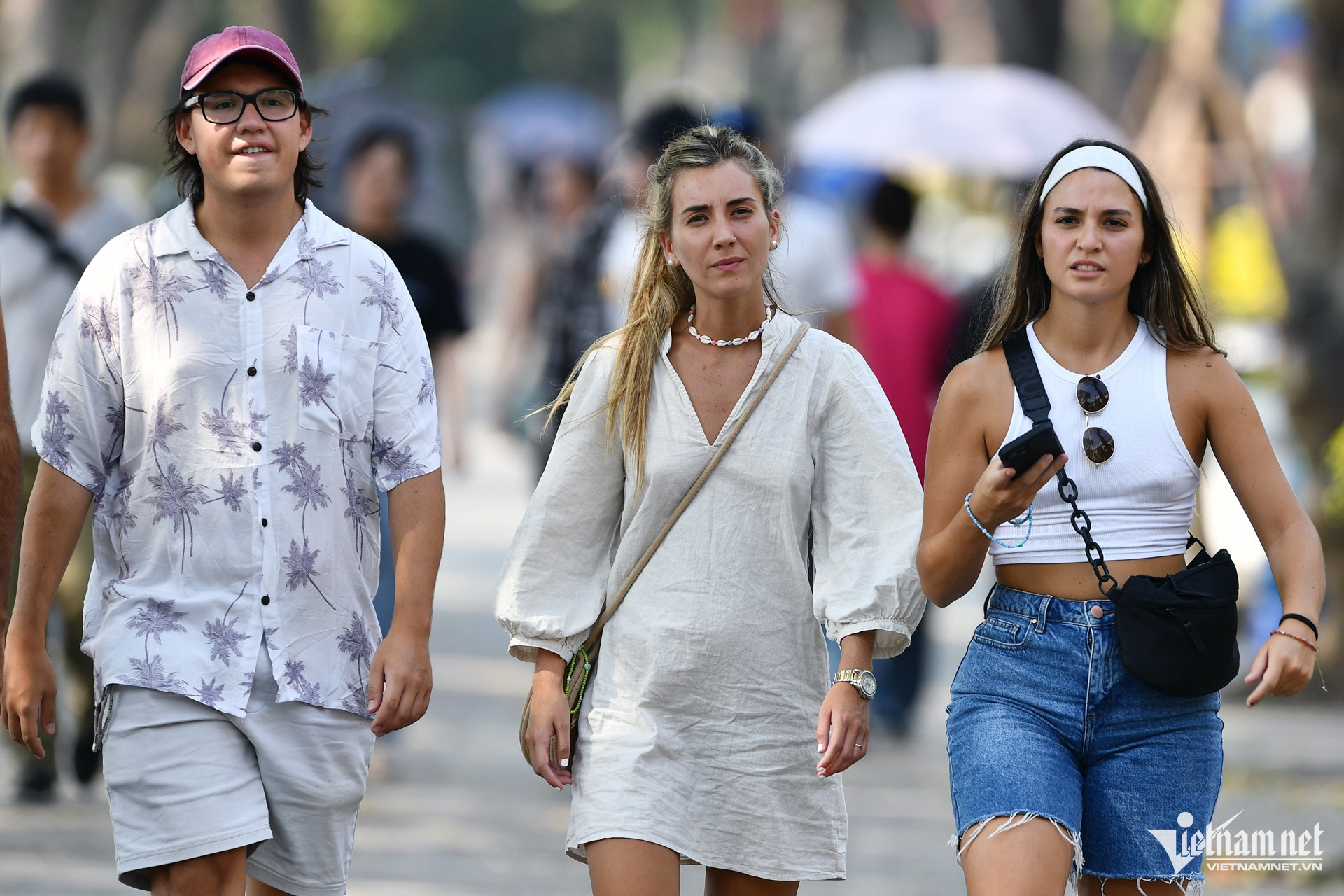
To boost tourism, the Prime Minister in March tasked the Ministry of Foreign Affairs (MOFA), Ministry of Public Security (MPS), and the Ministry of Culture, Sport and Tourism (MCST) to study suitable visa policies, particularly for countries with traditional friendly ties, and offer visa exemptions for certain nations.
In the first three months of the year, Vietnam attracted over 6 million international visitors, higher than in the same period in 2019 before the Covid-19 outbreak.
Experts pointed out that Vietnam’s visa policies remain cautious and restrictive compared to regional peers like Thailand or Malaysia.
Wealthy tourists
At the seminar titled “Which Tourists Should Vietnam Grant Visa Waivers?” held on April 24, Vo Anh Tai, Deputy CEO of SaigonTourist Group, noted that some attractive tourism markets do not enjoy visa waivers and urged the government to simplify current procedures and offer waivers to lure more travelers.
Tai was referring to China, the US, India, Australia, New Zealand, and the Middle East. These are markets with a high number of tourists and high-spending tourists, which Vietnam is targeting. If full exemptions aren’t feasible, Tai suggested selective waivers to tap into these markets’ potential.
Target groups for visa exemptions as Tai proposed include top experts, elites, and billionaires with high spending capacity.
Additionally, for long-term visas, he suggested extending validity by 5-10 years, with longer renewal options compared to the current 1-2 years.
Nguyen Quang Trung from Vietnam Airlines said that it was more critical to attract high-spending tourists than sheer numbers. They spend money generously, stay longer, and have high return rates. This group also enhances aviation efficiency, expands international flight networks, and boosts national competitiveness.
Trung proposed a 12-month pilot visa waiver for citizens of China, Hong Kong, Taiwan (China), and India. He also suggested extending the visa exemption period to 90 days for tourists from Europe, North America, and Australia, and issuing 24-month long-term visas for investors and experts. In addition, streamlining e-visa processes to under 24 hours would be especially important.
“International tourism should be seen as an ‘on-site export’ industry generating significant foreign currency. It needs to be unleashed to realize its potential,” Trung said.
Strategic markets
Nguyen Thu Thuy, Marketing Director of Vingroup Group, proposed prioritizing visa exemptions for strategic markets with exceptional growth potential.
Thuy said waiving visas was essential for markets with high-spending travelers, long stays, and rapidly changeable tourism behaviors such as Australia and New Zealand.
Next are markets inclined toward extended vacations and willing to pay for premium experiences, like Nordic countries (Norway, Sweden, Finland, and Denmark).
The next priority would be emerging markets with tourists favoring long stays, high spending, and warm destinations to escape winter, such as Kazakhstan, Uzbekistan, Kyrgyzstan, Azerbaijan, and Mongolia.
“With its rich coastal and island tourism ecosystem, Vietnam can be competitive if visa policies are flexible enough,” Thuy said.
Finally, the highly potential markets from Gulf countries like the UAE, Qatar, and Saudi Arabia are also important because they spend big money and demand a high quality of service.
Thuy also proposed a “conditional visa waiver” model tied to specific tourism products. For instance, visa exemptions could be applied only to tourists booking all-inclusive tours, staying at licensed facilities, following clear itineraries, and traveling with reputable international travel agencies.
“This model has been successfully implemented by Thailand and Saudi Arabia, ensuring quality control, boosting spending level, and maintaining security,” she said.
She further suggested flexible, seasonal, or campaign-based pilot policies like a “Visa Sandbox” model applied at well-equipped destinations like Phu Quoc, Nha Trang, and Ha Long.
Seasonal trials and links with communication campaigns would help assess real-world effectiveness, and then the policy could be scaled up nationwide if appropriate.
Dong Ngoc Anh, Deputy CEO of SunGroup, proposed a specific visa policy for Phu Quoc. Currently, Phu Quoc offers a 30-day visa exemption for all international visitors. Anh suggested extending this to 90 days to meet demand for long-term stays, especially during winter.
She also recommended piloting on-arrival visas for large groups of tourists, premium tourists, tourists from target markets, retirees, and investors in tourism and technology, or those who can bring high economic value and small security risks.
Experts noted that to attract more visitors, increase return rates, and boost spending, Vietnam must also enhance service quality, develop compelling tourism products, and strengthen international marketing.
Ngoc Ha